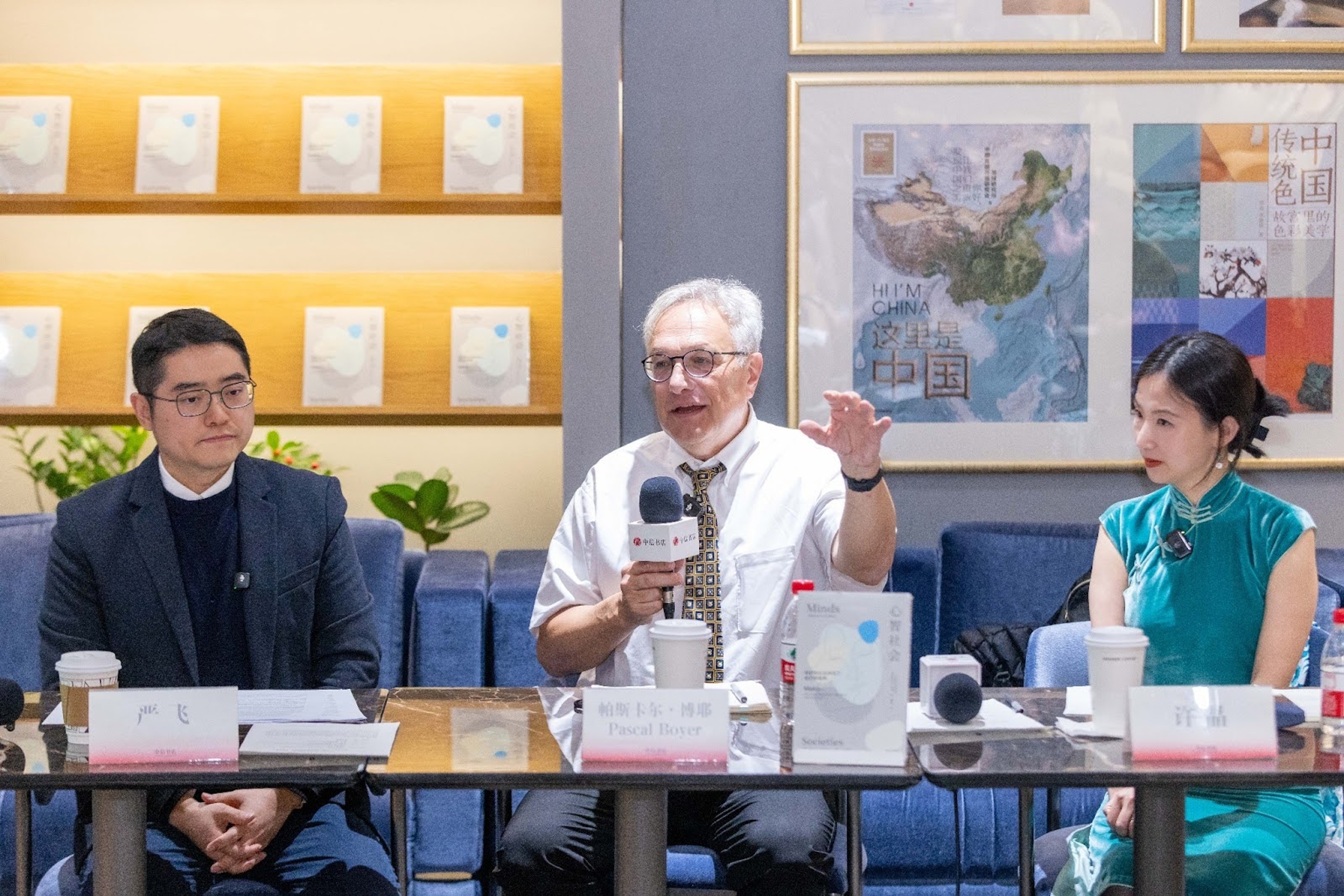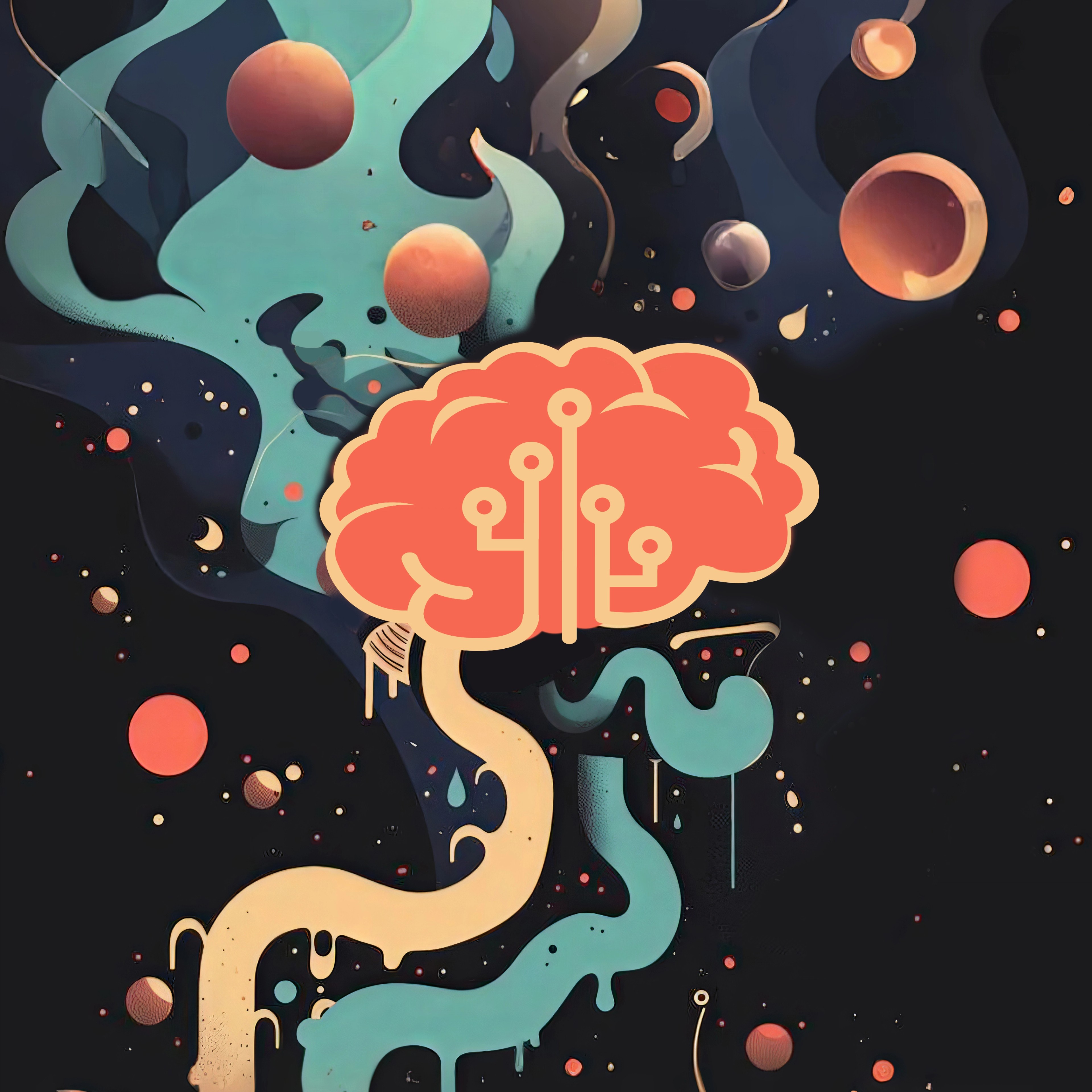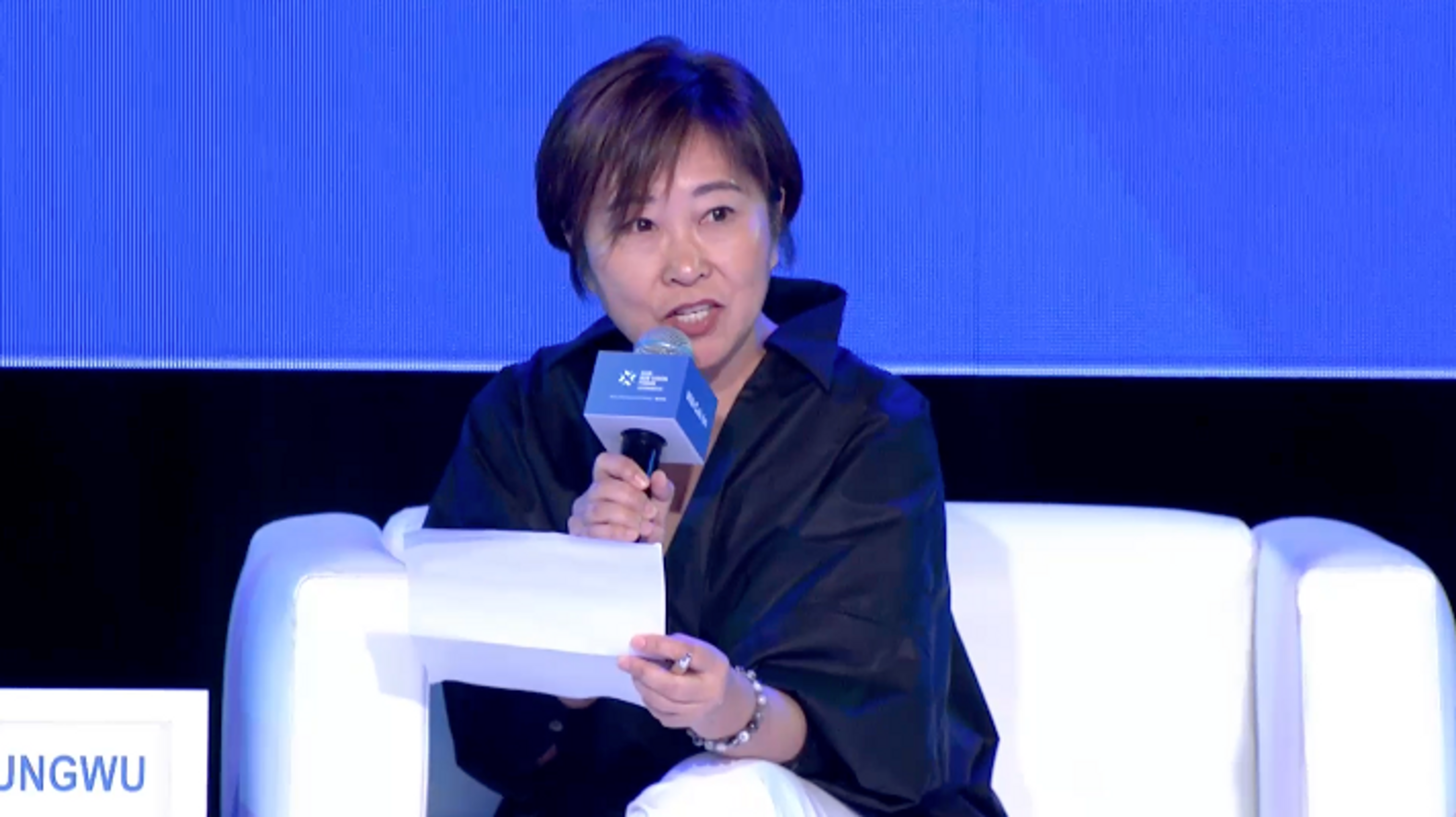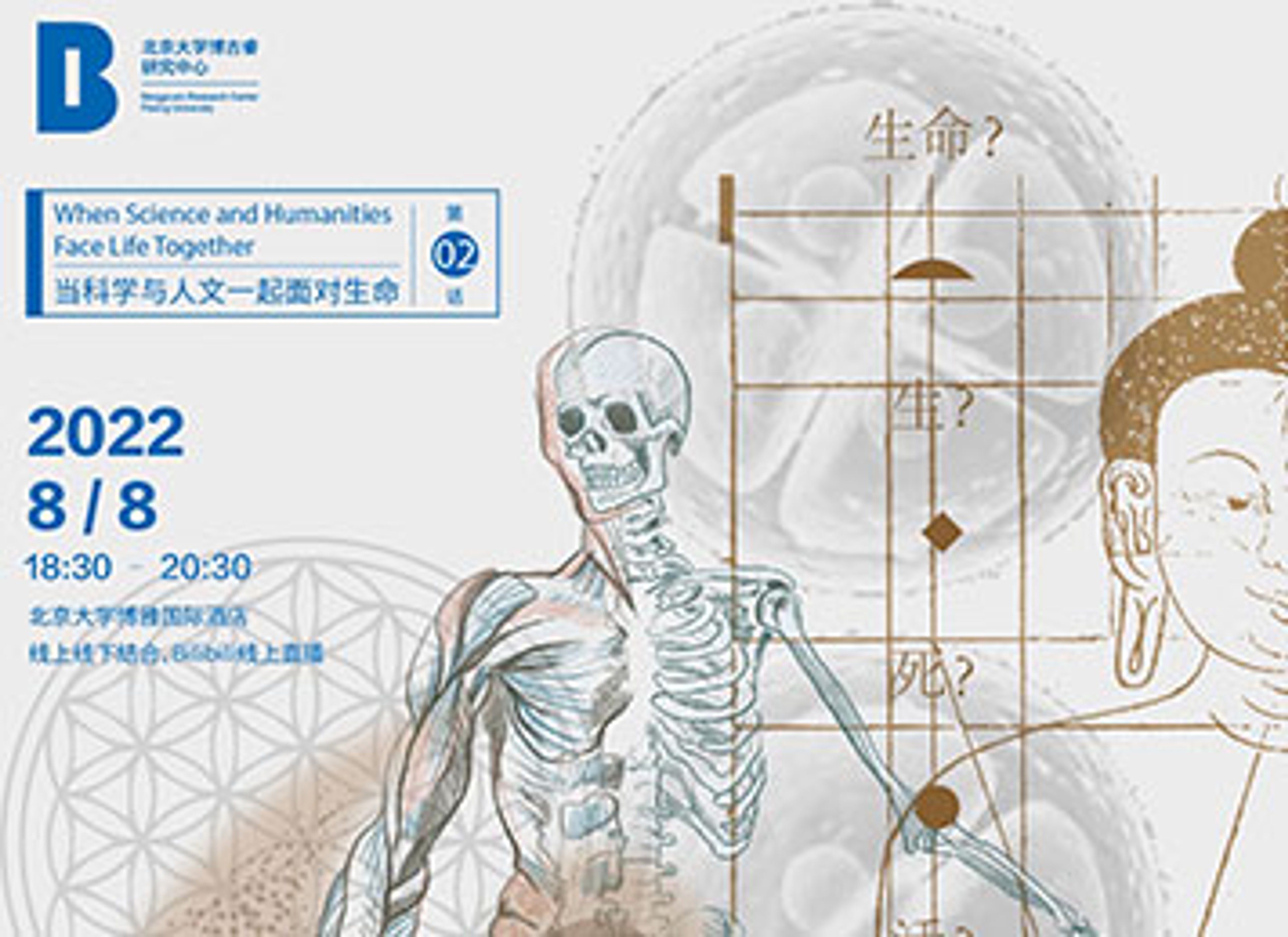Berggruen Institute’s China Center Announces New Cohort of Fellows
The Berggruen Institute has announced six scientists and philosophers to serve as Fellows at the Berggruen Research Center at Peking University in Beijing, China. These eminent scholars will work together across disciplines to explore how the great transformations of our time may shift human experience and self-understanding in the decades and centuries to come.
The new Fellows are Chenjian Li, University Chair Professor at Peking University; Xianglong Zhang, professor of philosophy at Peking University; Xiaoli Liu, professor of philosophy at Renmin University of China; Jianqiao Ge, lecturer at the Academic for Advanced Interdisciplinary Studies (AAIS) at Peking University; Xiaoping Chen, Director of the Robotics Laboratory at the University of Science and Technology of China; and Haidan Chen, associate professor of medical ethics and law at the School of Health Humanities at Peking University.
“Amid the pandemic, climate change, and the rest of the severe challenges of today, our Fellows are surmounting linguistic and cultural barriers to imagine positive futures for all people,” said Bing Song, Director of the China Center and Vice President of the Berggruen Institute. “Dialogue and shared understanding are crucial if we are to understand what today’s breakthroughs in science and technology really mean for the human community and the planet we all share.”
The Fellows will investigate deep questions raised by new understandings and capabilities in science and technology, exploring their implications for philosophy and other areas of study. Chenjian Li is considering the philosophical and ethical considerations of gene editing technology. Meanwhile, Haidan Chen is exploring the social implications of brain/computer interface technologies in China, while Xiaoli Liu is studying philosophical issues arising from the intersections among psychology, neuroscience, artificial intelligence, and art.
Jianqiao Ge’s project considers the impact of artificial intelligence on the human brain, given the relative recency of its evolution into current form. Xianglong Zhang’s work explores the interplay between literary culture and the development of technology. Finally, Xiaoping Chen is developing a new concept for describing innovation that draws from Daoist, Confucianist, and ancient Greek philosophical traditions.
Fellows at the China Center meet monthly with the Institute’s Los Angeles-based Fellows. These fora provide an opportunity for all Fellows to share and discuss their work. Through this cross-cultural dialogue, the Institute is helping to ensure continued high-level of ideas among China, the United States, and the rest of the world about some of the deepest and most fundamental questions humanity faces today.
“Changes in our capability and understanding of the physical world affect all of humanity, and questions about their implications must be pondered at a cross-cultural level,” said Bing. “Through multidisciplinary dialogue that crosses the gulf between East and West, our Fellows are pioneering new thought about what it means to be human.”
Haidan Chen is associate professor of medical ethics and law at the School of Health Humanities at Peking University. She was a visiting postgraduate researcher at the Institute for the Study of Science Technology and Innovation (ISSTI), the University of Edinburgh; a visiting scholar at the Brocher Foundation, Switzerland; and a Fulbright visiting scholar at the Center for Biomedical Ethics, Stanford University. Her research interests embrace the ethical, legal, and social implications (ELSI) of genetics and genomics, and the governance of emerging technologies, in particular stem cells, biobanks, precision medicine, and brain science. Her publications appear at Social Science & Medicine, Bioethics and other journals.
Xiaoping Chen is the director of the Robotics Laboratory at University of Science and Technology of China. He also currently serves as the director of the Robot Technical Standard Innovation Base, an executive member of the Global AI Council, Chair of the Chinese RoboCup Committee, and a member of the International RoboCup Federation’s Board of Trustees. He has received the USTC’s Distinguished Research Presidential Award and won Best Paper at IEEE ROBIO 2016. His projects have won the IJCAI’s Best Autonomous Robot and Best General-Purpose Robot awards as well as twelve world champions at RoboCup. He proposed an intelligent technology pathway for robots based on Open Knowledge and the Rong-Cha principle, which have been implemented and tested in the long-term research on KeJia and JiaJia intelligent robot systems.
Jianqiao Ge is a lecturer at the Academic for Advanced Interdisciplinary Studies (AAIS) at Peking University. Before, she was a postdoctoral fellow at the University of Chicago and the Principal Investigator / Co-Investigator of more than 10 research grants supported by the Ministry of Science and Technology of China, the National Natural Science Foundation of China, and Beijing Municipal Science & Technology Commission. She has published more than 20 peer-reviewed articles on leading academic journals such as PNAS, the Journal of Neuroscience, and has been awarded two national patents. In 2008, by scanning the human brain with functional MRI, Ge and her collaborator were among the first to confirm that the human brain engages distinct neurocognitive strategies to comprehend human intelligence and artificial intelligence. Ge received her Ph.D. in psychology, B.S in physics, a double B.S in mathematics and applied mathematics, and a double B.S in economics from Peking University.
Chenjian Li is the University Chair Professor of Peking University. He also serves on the China Advisory Board of Eli Lilly and Company, the China Advisory Board of Cornell University, and the Rhodes Scholar Selection Committee. He is an alumnus of Peking University’s Biology Department, Peking Union Medical College, and Purdue University. He was the former Vice Provost of Peking University, Executive Dean of Yuanpei College, and Associate Dean of the School of Life Sciences at Peking University. Prior to his return to China, he was an associate professor at Weill Medical College of Cornell University and the Aidekman Endowed Chair of Neurology at Mount Sinai School of Medicine. Dr. Li’s academic research focuses on the molecular and cellular mechanisms of neurological diseases, cancer drug development, and gene-editing and its philosophical and ethical considerations. Li also writes as a public intellectual on science and humanity, and his Chinese translation of Richard Feynman’s book What Do You Care What Other People Think? received the 2001 National Publisher’s Book Award.
Xiaoli Liu is professor of philosophy at Renmin University. She is also Director of the Chinese Society of Philosophy of Science Leader. Her primary research interests are philosophy of mathematics, philosophy of science and philosophy of cognitive science. Her main works are “Life of Reason: A Study of Gödel’s Thought,” “Challenges of Cognitive Science to Contemporary Philosophy,” “Philosophical Issues in the Frontiers of Cognitive Science.” She edited “Symphony of Mind and Machine” and series of books “Mind and Cognition.” In 2003, she co-founded the “Mind and Machine workshop” with interdisciplinary scholars, which has held 18 consecutive annual meetings. Liu received her Ph.D. from Peking University and was a senior visiting scholar in Harvard University.
Xianglong Zhang is a professor of philosophy at Peking University. His research areas include Confucian philosophy, phenomenology, Western and Eastern comparative philosophy. His major works (in Chinese except where noted) include: Heidegger’s Thought and Chinese Tao of Heaven; Biography of Heidegger; From Phenomenology to Confucius; The Exposition and Comments of Contemporary Western Philosophy; The Exposition and Comments of Classic Western Philosophy; Thinking to Take Refuge: The Chinese Ancient Philosophies in the Globalization; Lectures on the History of Confucian Philosophy (four volumes); German Philosophy, German Culture and Chinese Philosophical Thinking; Home and Filial Piety: From the View between the Chinese and the Western.




















